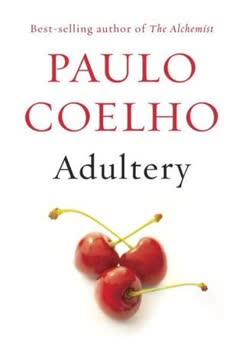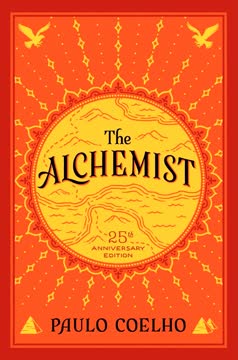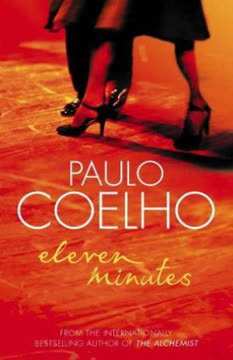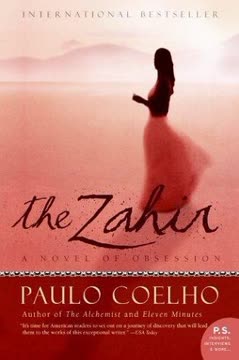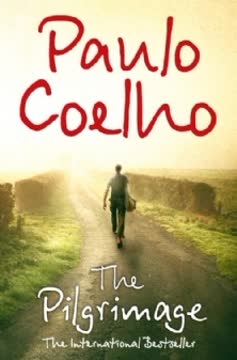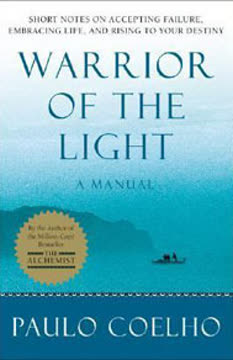Plot Summary
Perfect Life, Hidden Emptiness
Linda, a successful journalist in Geneva, appears to have it all: a loving, wealthy husband, two children, a beautiful home, and a respected career. Yet, beneath the surface, she is plagued by a sense of numbness and dissatisfaction. Her days are a repetition of domestic and professional routines, and she feels increasingly disconnected from herself. The world sees her as enviable, but Linda's internal monologue is filled with anxiety, fear of change, and a gnawing sense that something essential is missing. She questions whether happiness is possible within the confines of her safe, predictable existence, and wonders if her lack of passion is a sign of age or something more profound.
The Question That Changed Everything
Linda's malaise intensifies after an interview with a writer who claims to prefer living passionately over being happy. This offhand remark unsettles her, making her realize how risk-averse and routine-bound her life has become. The question "Is this it?" echoes in her mind, opening a Pandora's box of doubts about her marriage, motherhood, and self-worth. She becomes obsessed with the possibility that her husband might be unfaithful or that she herself is incapable of true feeling. The safe, ordered world she's built suddenly feels fragile, and she is haunted by the fear that either everything will change or nothing ever will.
Routine, Restlessness, and Despair
Linda's attempts to distract herself—shopping, socializing, working—fail to fill the void. She cycles between moments of contentment and sudden, inexplicable sadness. Nights are the worst, filled with insomnia and existential dread. She envies the suffering of others, feeling guilty for her own unhappiness amid privilege. Her marriage, once passionate, has become mechanical and distant. She fakes orgasms, lies to friends about her sex life, and feels herself dying inside. The monotony of her days and the predictability of her future become a source of terror rather than comfort.
Depression and Denial
A lunch with a friend on antidepressants forces Linda to confront the possibility that she is depressed. She resists the label, insisting her problem is not chemical but existential. Her friend describes depression as a trap, a vegetative state where pretending becomes a way of life. Linda recognizes herself in this description but clings to the hope that her malaise is temporary. She oscillates between denial and self-diagnosis, unwilling to seek professional help or admit her vulnerability to those closest to her.
The Ex-Boyfriend Returns
Assigned to interview Jacob, a former high school boyfriend turned politician, Linda is surprised by the emotional charge of their meeting. Jacob, too, is dissatisfied with his life, trapped by expectations and public scrutiny. Their conversation is laced with nostalgia, regret, and a mutual recognition of unhappiness. Jacob's question—"Are you happy?"—pierces Linda's defenses. For the first time in years, she feels seen and understood. The encounter awakens dormant desires and sets the stage for a dangerous emotional entanglement.
Crossing the Line
What starts as a professional meeting quickly turns physical. Linda and Jacob share a passionate, illicit encounter that leaves her both exhilarated and terrified. The act is less about love or lust than about breaking free from the suffocating constraints of her life. The affair injects excitement and risk into Linda's world, but also brings guilt and paranoia. She becomes hyper-vigilant, fearing discovery, yet is unable to resist the pull of transgression. The boundaries between love, sex, and self-destruction blur.
Guilt, Fear, and Desire
After the affair, Linda is consumed by fear of being caught and by a renewed sexual desire for her husband. The guilt she expects to feel is replaced by a strange sense of liberation. Her marriage briefly rekindles, but the underlying issues remain unresolved. Linda's internal conflict intensifies as she juggles her roles as wife, mother, lover, and professional. She rationalizes her actions, seeking solace in the idea that everyone harbors secret desires and that happiness is an illusion.
The Saturn Return
Jacob introduces the concept of the Saturn return—a period of reckoning and transformation that occurs every 29 years. Both he and Linda are at this crossroads, forced to confront the choices that have defined their lives. The Saturn return becomes a metaphor for the inevitability of change, the end of youthful dreams, and the acceptance of adult limitations. Their affair is framed as a last grasp at passion before the window closes forever.
The Mask of Happiness
Linda becomes adept at wearing the mask of happiness, fooling her family, friends, and colleagues. She performs the rituals of daily life with increasing detachment, her inner turmoil hidden behind a practiced smile. The affair with Jacob continues, but brings diminishing returns. Linda's sense of self fractures as she oscillates between euphoria and despair. She contemplates revenge against Jacob's wife, Marianne, as a way to assert control and validate her own worth.
The Other Woman
Marianne, Jacob's wife, becomes the focus of Linda's jealousy and resentment. Marianne is everything Linda is not: elegant, accomplished, unflappable. Linda's fixation on her rival escalates into a plan for revenge—planting drugs to frame Marianne and destroy her reputation. The scheme is both absurd and desperate, a manifestation of Linda's unraveling psyche. The rivalry with Marianne exposes the darker aspects of Linda's character and the destructive potential of unacknowledged desires.
Obsession and Rivalry
Linda's plan to frame Marianne is thwarted by circumstance and her own ambivalence. She recognizes the monstrousness of her actions, drawing parallels to Frankenstein and Dr. Jekyll and Mr. Hyde. The narrative becomes a meditation on the duality of human nature—the capacity for both love and cruelty, creation and destruction. Linda's self-awareness deepens, but so does her sense of alienation and guilt.
The Plan for Revenge
Linda's obsession with revenge and her inability to let go of Jacob push her to the brink of madness. She seeks help from psychiatrists, shamans, and self-help books, but finds no relief. Her attempts at self-diagnosis and spiritual healing are met with skepticism and platitudes. The realization that she is her own worst enemy brings both despair and a glimmer of hope. The only way out is through—by facing her fears and accepting responsibility for her choices.
The Monster Within
Linda's journey becomes an exploration of the shadow self—the repressed desires, fears, and resentments that drive her actions. She acknowledges the harm she has caused to herself and others, and the futility of seeking happiness through external validation. The affair with Jacob ends in disillusionment, and Linda is left to pick up the pieces of her life. The process of healing begins with self-forgiveness and a renewed commitment to honesty and vulnerability.
Confession and Forgiveness
Linda finally confesses her struggles to her husband, expecting anger or rejection. Instead, he responds with understanding and unconditional love. Their conversation is a turning point, allowing both to acknowledge their fears, disappointments, and unmet needs. The act of confession becomes an act of liberation, breaking the cycle of secrecy and shame. Together, they resolve to rebuild their relationship on a foundation of trust, acceptance, and mutual support.
The Search for Meaning
Seeking renewal, Linda and her husband travel to Interlaken, where they confront their shared history and unfulfilled dreams. A paragliding flight becomes a metaphor for letting go of control and embracing the unknown. In the air, Linda experiences a moment of transcendence—a sense of unity with the world and a release from the burdens of the past. The experience marks the beginning of a new chapter, grounded in acceptance and gratitude.
Letting Go, Letting Live
Linda ends her affair with Jacob, returning the cocaine she had intended for Marianne and symbolically freeing herself from addiction—to passion, to drama, to self-destruction. She chooses to stay with her husband and children, recognizing that love is not about perfection or constant excitement, but about presence, forgiveness, and growth. The lessons of her journey are internalized, and she resolves to live more authentically, embracing both the light and the darkness within.
Flight and Freedom
As the year ends, Linda reflects on the meaning of love, marriage, and self-acceptance. She understands that true happiness is not found in external achievements or fleeting passions, but in the willingness to face oneself honestly and to love abundantly. The story closes with Linda and her family celebrating the new year, hopeful and united, having survived the storm and emerged stronger. The final message is one of hope: to love better, to live fully, and to accept the ever-changing nature of life.
Characters
Linda
Linda is a woman in her thirties who outwardly embodies success and fulfillment but is inwardly plagued by emptiness, anxiety, and a longing for passion. Her psychological journey is marked by oscillations between self-loathing and self-discovery, denial and confession, control and surrender. Linda's relationships—with her husband, children, friends, and lover—are shaped by her fear of stagnation and her desperate search for meaning. Her affair with Jacob is less about love than about escaping the suffocating predictability of her life. Over the course of the novel, Linda confronts her own capacity for darkness, ultimately finding redemption through honesty, vulnerability, and the acceptance of imperfection.
Linda's Husband
Linda's husband is a wealthy, successful man who appears to be the perfect spouse and father. He is attentive, generous, and supportive, yet emotionally reserved. His lack of jealousy and apparent contentment mask his own fears and disappointments. When Linda finally confesses her struggles, he responds with compassion and understanding, offering her the space to heal and grow. His willingness to forgive and his commitment to their marriage are crucial to Linda's recovery and the restoration of their relationship.
Jacob König
Jacob is Linda's former high school boyfriend, now a prominent politician. Like Linda, he is trapped by societal expectations and personal ambition, leading to a profound sense of dissatisfaction. His affair with Linda is an attempt to recapture lost youth and passion, but ultimately exposes his own limitations and fears. Jacob's inability to commit fully to either his wife or Linda reflects his inner turmoil and the impossibility of reconciling desire with duty. His role in Linda's life is both catalyst and mirror, forcing her to confront her own unhappiness.
Marianne König
Marianne is Jacob's wife, a successful academic and the object of Linda's obsession. She is poised, intelligent, and seemingly unflappable, embodying the qualities Linda feels she lacks. Marianne's response to her husband's infidelity is pragmatic and detached, viewing it as a normal part of marriage rather than a betrayal. Her presence in the narrative serves as a foil to Linda, highlighting the different ways women cope with insecurity, jealousy, and the demands of modern life.
Linda's Children
Linda's children are central to her identity as a mother and her fears about the future. They represent both the joys and burdens of domestic life, anchoring her to reality even as she longs for escape. Her concern for their well-being is a recurring theme, fueling her anxiety about change and her desire for stability.
Linda's Friend (on Antidepressants)
This friend's openness about her depression and recovery challenges Linda's denial and forces her to confront her own mental health. Their conversations provide insight into the nature of suffering, the stigma of mental illness, and the limitations of pharmaceutical solutions.
The Cuban Shaman
The shaman represents an alternative approach to healing, emphasizing the importance of embracing both light and darkness. His advice to "go all the way" and his belief in the power of guardian spirits offer Linda a different perspective on her struggles, encouraging her to seek meaning beyond conventional therapy.
The Drug Dealer
The drug dealer whom Linda approaches in her quest for revenge is portrayed with surprising depth and humanity. He challenges her motives, warns her of the consequences, and ultimately refuses to participate in her scheme. His presence in the story underscores the absurdity and desperation of Linda's actions.
Linda's Boss
Linda's boss is a minor but significant character, representing the external demands and expectations that contribute to her sense of inadequacy and stress. His focus on sensational stories and workplace politics adds another layer to Linda's internal conflict.
The Psychiatrist(s)
The various mental health professionals Linda consults are depicted as well-meaning but ultimately unhelpful. Their reliance on medication, labels, and standard protocols highlights the limitations of modern psychiatry in addressing existential suffering.
Plot Devices
Duality and the Shadow Self
The novel's structure and imagery are built around the concept of duality: light and darkness, love and hate, routine and adventure, self-control and self-destruction. References to Frankenstein and Dr. Jekyll and Mr. Hyde serve as metaphors for the hidden aspects of the self that emerge under pressure. Linda's journey is one of integrating these opposites, accepting the coexistence of virtue and vice within herself.
Adultery as Catalyst
The affair with Jacob is not merely a plot point but a vehicle for exploring deeper questions about identity, desire, and fulfillment. Adultery becomes a metaphor for the risks and consequences of seeking meaning outside the boundaries of social convention. The narrative does not moralize but instead examines the psychological and emotional fallout of transgression.
Psychological Realism and Internal Monologue
The story unfolds largely through Linda's internal monologue, providing an intimate portrait of her thoughts, fears, and rationalizations. This stream-of-consciousness approach allows for a nuanced exploration of mental health, self-deception, and the search for authenticity.
Symbolism of Flight and Freedom
The climactic paragliding scene serves as a powerful symbol of liberation, surrender, and the possibility of renewal. The experience of flight represents a break from the constraints of daily life and a glimpse of unity with the universe. It marks the turning point in Linda's journey from despair to acceptance.
Foreshadowing and Recurring Motifs
The novel employs foreshadowing through references to storms, volcanoes, and the Saturn return, signaling impending crisis and transformation. Motifs of masks, mirrors, and monsters reinforce the theme of hidden truths and the struggle for self-knowledge.
Analysis
Paulo Coelho's Adultery is a modern meditation on the paradoxes of happiness, the dangers of routine, and the complexity of desire. Through Linda's journey, the novel interrogates the myth of the perfect life and exposes the psychological costs of denying one's true feelings. Adultery, in this context, is less a moral failing than a symptom of deeper existential malaise—a desperate attempt to feel alive in a world that prizes stability over passion. The narrative's strength lies in its unflinching portrayal of the shadow self, the parts of us we repress in order to conform. Coelho suggests that true fulfillment comes not from external achievements or fleeting pleasures, but from the courage to face oneself honestly, to embrace both light and darkness, and to love abundantly despite imperfection. The novel's ultimate message is one of hope: that even in the aftermath of betrayal and self-destruction, it is possible to find forgiveness, renewal, and a deeper, more authentic connection to oneself and others.
Last updated:
FAQ
Synopsis & Basic Details
What is Adultery about?
- A Woman's Existential Crisis: Adultery follows Linda, a seemingly successful Swiss journalist in her thirties, who finds her outwardly perfect life—complete with a loving husband, two children, and a respected career—plagued by a profound sense of emptiness, routine, and a terrifying lack of passion. This internal void drives her to question the very meaning of happiness and fulfillment.
- Search for Rekindled Passion: Linda's growing dissatisfaction leads her to seek an escape from her monotonous existence. A chance encounter with Jacob König, a former high school boyfriend now a prominent politician, ignites a dangerous and illicit affair, which she hopes will reawaken her dormant desires and provide the adventure she craves.
- Journey of Self-Discovery: The novel delves into Linda's psychological and emotional turmoil as she navigates the complexities of infidelity, guilt, and self-deception. Her journey is a raw exploration of the human need for connection, the allure of the forbidden, and the ultimate quest to reconcile her inner turmoil with her external reality, leading to a profound re-evaluation of her life and relationships.
Why should I read Adultery?
- Intimate Psychological Exploration: Readers should delve into Adultery for its unflinching, first-person psychological realism, offering a deep dive into the mind of a woman grappling with existential ennui despite a seemingly perfect life. It provides a rare, honest look at the internal battles of dissatisfaction and the search for meaning beyond societal expectations.
- Provocative Moral Dilemmas: The novel challenges conventional notions of fidelity, happiness, and self-worth, presenting adultery not merely as a transgression but as a catalyst for profound self-discovery. It forces readers to confront uncomfortable questions about their own desires, the masks they wear, and the price of authenticity.
- Coelho's Signature Wisdom: Fans of Paulo Coelho will find his characteristic blend of spiritual allegory and philosophical insight woven into a contemporary narrative. The story, while grounded in modern life, uses symbolism and introspective passages to explore universal themes of love, fear, and the courage required to live a passionate, authentic life.
What is the background of Adultery?
- Swiss Cultural Context: The novel is deeply embedded in its Geneva, Switzerland setting, highlighting the country's reputation for neutrality, order, and discretion. Linda's internal chaos is starkly contrasted with the external calm and predictability of Swiss society, where "happiness is not something that can be precisely measured, discussed in plebiscites, or analyzed by specialists" (Chapter 10), intensifying her feeling of being an anomaly.
- Exploration of Midlife Crisis: Adultery taps into the universal experience of a midlife crisis, particularly for women, where the established routines of marriage, motherhood, and career can lead to a questioning of purpose and a longing for lost youth or unfulfilled dreams. Linda's journey reflects a common struggle to reconcile youthful aspirations with adult responsibilities.
- Author's Personal Reflections: Paulo Coelho has often drawn from his own life experiences and philosophical ponderings in his works. Adultery continues this tradition, exploring themes of personal transformation and the pursuit of a meaningful existence, echoing his broader literary focus on spiritual journeys and the courage to follow one's own path.
What are the most memorable quotes in Adultery?
- "I haven't the slightest interest in being happy. I prefer to live life passionately, which is dangerous because you never know what might happen next." (Chapter 1): This quote, from the writer Linda interviews, acts as the inciting incident for her existential crisis, directly challenging her complacent view of happiness and sparking her desperate quest for passion. It encapsulates the novel's central theme of choosing between comfort and intensity.
- "I am a woman torn between the terror that everything might change and the equal terror that everything might carry on exactly the same for the rest of my days." (Chapter 1): This powerful line perfectly articulates Linda's core internal conflict, revealing the paralyzing paradox of her dissatisfaction. It highlights the deep-seated fear of both stagnation and the unknown that drives her actions throughout the narrative.
- "To love is to transform slavery into freedom." (Chapter 31): This profound statement, emerging from Linda's late-night reflections, offers a glimpse into her evolving understanding of love and liberation. It suggests that true love, rather than being a burden or a constraint, is the ultimate path to personal freedom, contrasting sharply with her earlier, more transactional views of relationships.
What writing style, narrative choices, and literary techniques does Paulo Coelho use?
- First-Person Introspective Monologue: Coelho primarily employs a first-person narrative, immersing the reader directly into Linda's stream of consciousness. This allows for an intimate, unfiltered exploration of her thoughts, fears, and rationalizations, making her psychological journey the central focus of the novel.
- Philosophical Allegory and Symbolism: The narrative is rich with allegorical elements and recurring symbols, such as the "Saturn return" (Chapter 10) representing cycles of transformation, the "porcupine story" (Chapter 27) illustrating the challenges of intimacy, and the "Jet d'Eau" (Chapter 50) symbolizing the ever-changing nature of love. These elements elevate the personal story to a universal human experience.
- Intertextual References and Literary Allusions: Coelho frequently weaves in references to classic literature and religious texts, including Frankenstein and Dr. Jekyll and Mr. Hyde (Chapter 29, 33) to explore themes of duality and the "monster within," and biblical stories like David and Bathsheba (Chapter 43) to contextualize human failings and desires within a broader moral framework.
Hidden Details & Subtle Connections
What are some minor details that add significant meaning?
- The Neighbor's Car Washing Ritual: Linda's observation of her neighbor meticulously washing his Audi (Chapter 2, 7) initially serves as a symbol of mundane, "pointless" routine, mirroring her own perceived emptiness. However, later, she re-evaluates it as a potential source of simple enjoyment and appreciation for life's small blessings (Chapter 16), reflecting her shifting perspective on what constitutes a meaningful existence.
- The Porcupine Story's Foreshadowing: The children's bedtime story about porcupines huddling for warmth but pricking each other (Chapter 27) subtly foreshadows Linda's own struggles with intimacy and vulnerability. It highlights the inherent pain in close relationships and the choice between isolation and accepting minor wounds for the sake of shared warmth, a dilemma she faces in her marriage.
- The Jet d'Eau's Evolving Symbolism: Geneva's iconic Jet d'Eau, initially a mere landmark, is later described by a scientist as "the most beautiful monument to love conceived by the art of man, because it is also never the same" (Chapter 50). This transformation from a functional overflow mechanism to a symbol of love's dynamic, ever-changing nature mirrors Linda's journey from rigid expectations to embracing the fluidity of her own emotions and relationships.
What are some subtle foreshadowing and callbacks?
- The "Volcano" Metaphor: Early in the novel, Linda dismisses the writer's influence, stating he "merely took the top off a volcano that could have erupted at any moment" (Chapter 4). This foreshadows her inevitable emotional explosion and the destructive, yet ultimately cleansing, release of her repressed feelings, indicating that her crisis was internal and pre-existing.
- The "Computer Virus" Analogy: Linda describes her deteriorating mental state as a "virus has infected the computer... Everything is slowing down... Certain files—photos, documents—have disappeared without a trace" (Chapter 31). This callback to her professional world subtly foreshadows her loss of control and the erosion of her carefully constructed identity, suggesting an insidious, internal breakdown rather than an external attack.
- The Chess Game and "Go All The Way": The Cuban shaman's advice to "Go all the way" while observing a chess game (Chapter 35) subtly foreshadows Linda's eventual decision to fully commit to her chosen path, whether it be adultery or reconciliation. It implies that true understanding and resolution come only through seeing a situation through to its conclusion, rather than stopping halfway out of fear.
What are some unexpected character connections?
- The Drug Dealer's Moral Compass: Linda's encounter with the drug dealer (Chapter 31) is unexpectedly profound. Far from being a simple transaction, he acts as an unwitting moral guide, questioning her motives for revenge, advising her on the dangers of her plan, and even offering financial counsel. This connection highlights the novel's theme that wisdom and unexpected insights can come from the most unconventional sources, challenging Linda's preconceived notions of "good" and "bad."
- Linda's Husband's Hidden Jealousy: Linda discovers her husband grew up "witnessing terrible displays of jealousy at home" (Chapter 47), which explains his extreme self-control and apparent lack of jealousy in their marriage. This revelation creates an unexpected connection, showing that his "perfection" was a learned defense mechanism, making him more human and vulnerable in Linda's eyes, and deepening her understanding of his unspoken motivations.
- The Cuban Shaman's Personal Experience with Adultery: The Cuban shaman, initially presented as a detached spiritual guide, unexpectedly reveals his own experience with adultery and impotence (Chapter 42). This personal confession creates a powerful, empathetic connection with Linda, validating her struggles and offering a non-judgmental perspective on the complexities of human desire and relationship breakdown, making his advice more resonant.
Who are the most significant supporting characters?
- The Cuban Shaman as a Spiritual Mirror: Beyond offering alternative therapy, the Cuban shaman (Chapter 35, 42) serves as a crucial spiritual mirror for Linda, reflecting her inner turmoil and guiding her towards self-acceptance. His non-judgmental approach and emphasis on embracing both light and darkness provide a stark contrast to the conventional psychiatrists, pushing Linda to look beyond superficial solutions.
- Marianne König as a Strategic Foil: Marianne, Jacob's wife (Chapter 23, 25, 47), is more than just a rival; she is a strategic foil who embodies a different, more calculated approach to life and relationships. Her intellectual detachment and manipulative tactics force Linda to confront her own naiveté and the destructive potential of her emotional impulses, ultimately leading Linda to question her own methods of seeking happiness.
- Linda's Friend on Antidepressants as a Catalyst for Self-Reflection: This unnamed friend (Chapter 6) is pivotal in forcing Linda to confront the possibility of her own depression. Her candid descriptions of apathy and the "trap" of pretending resonate deeply with Linda, serving as an early, uncomfortable catalyst for Linda's self-diagnosis and her initial, albeit reluctant, search for understanding.
Psychological, Emotional, & Relational Analysis
What are some unspoken motivations of the characters?
- Linda's Quest for Validation: Beneath her desire for passion, Linda's unspoken motivation is a deep-seated need for external validation and to prove her worth, both to herself and to others. Her initial pursuit of Jacob and her elaborate revenge plot against Marianne are driven by a desperate attempt to feel "important" and "alive," rather than genuinely in love, as revealed in her internal monologue (Chapter 24, 25).
- Husband's Fear of Losing Control: Linda's husband, despite his outward calm, is subtly motivated by a fear of losing control and disrupting the stability of his family. His willingness to accommodate Linda's "depression" and suggest solutions like trips or marriage counseling (Chapter 19, 31) stems from a desire to maintain their "perfect" life, even if it means suppressing his own potential unhappiness or suspicions.
- Marianne's Drive for Power and Image: Marianne König's actions are implicitly motivated by a powerful drive to maintain her social standing and control her public image. Her "consensual sex" philosophy and strategic use of Jacob's affair to denounce corruption (Chapter 23) reveal a calculated mind focused on political and social advancement, rather than genuine emotional connection, making her a formidable, if cold, adversary.
What psychological complexities do the characters exhibit?
- Linda's Self-Sabotage and Projection: Linda exhibits a complex pattern of self-sabotage, creating problems to escape boredom and projecting her internal chaos onto external situations. Her drug-planting scheme (Chapter 24, 31) and her confrontational behavior at the dinner (Chapter 47) are desperate attempts to externalize her inner "monster" and force a dramatic change, even if it means destroying her own life.
- Jacob's Performative Unhappiness: Jacob König displays a performative unhappiness, articulating his dissatisfaction with life and marriage (Chapter 10, 37) in a way that seeks sympathy and connection, yet he remains largely passive in changing his circumstances. His quick retreat from Linda's advances and his reliance on his wife's strategic thinking (Chapter 23) reveal a man more comfortable with the idea of rebellion than its actual execution.
- Husband's Repressed Emotionality: Linda's husband embodies repressed emotionality, internalizing his feelings to maintain an image of strength and stability. His confession of growing up with jealousy (Chapter 47) and his later emotional outburst in Interlaken (Chapter 53) reveal the deep psychological cost of his self-control, showing that his calm exterior hides a rich, often painful, inner life.
What are the major emotional turning points?
- The Writer's Provocation: The interview with the writer who champions passion over happiness (Chapter 1) serves as the initial emotional turning point, shattering Linda's complacency and igniting her existential crisis. This single conversation acts as a "top off a volcano" (Chapter 4), unleashing a torrent of repressed emotions and questions about her life's purpose.
- Jacob's "Are You Happy?" Question: Jacob's direct question, "Are you happy?" (Chapter 10), is a pivotal emotional moment for Linda. It pierces through her carefully constructed facade, making her feel "seen" and understood for the first time in years, triggering her renewed infatuation and the subsequent illicit affair.
- Confession to Her Husband: Linda's raw confession of her sadness and emptiness to her husband (Chapter 19) marks a profound emotional turning point. Instead of the expected anger, his understanding and unconditional love provide a sense of liberation and a path towards genuine healing, shifting her focus from external validation to internal reconciliation.
How do relationship dynamics evolve?
- From Complacent to Confrontational Marriage: Linda's marriage initially operates on a foundation of unspoken routine and complacency, where "time has stopped" (Chapter 1). Her affair and subsequent emotional breakdown force a shift, leading to a confrontational, yet ultimately more honest, dynamic where both partners are compelled to acknowledge their hidden dissatisfactions and fears (Chapter 19, 49).
- Jacob and Linda's Shifting Power Dynamics: The relationship between Linda and Jacob evolves from a nostalgic flirtation to a power struggle. Initially, Linda feels empowered by the illicit sex (Chapter 8, 39), but Jacob's detachment and his wife's strategic moves (Chapter 23, 47) shift the dynamic, leaving Linda feeling used and humiliated, ultimately leading her to seek closure on her own terms (Chapter 52).
- Marianne's Calculated Control over Jacob: Marianne's relationship with Jacob is revealed to be one of calculated control, where she strategically manages his public image and even his infidelities (Chapter 23, 47). This dynamic, initially perceived as indifference by Linda, evolves into a clear demonstration of Marianne's intellectual and emotional dominance, highlighting a different, more pragmatic form of marital bond.
Interpretation & Debate
Which parts of the story remain ambiguous or open-ended?
- The True Nature of Linda's "Love" for Jacob: While Linda claims to be "madly in love" with Jacob (Chapter 48), the narrative leaves it ambiguous whether this was genuine love or an addiction to the excitement and validation he provided. Her internal monologues often conflate passion with self-destruction, making it debatable if her feelings were truly for Jacob or for the "monster" he awakened within her.
- The Long-Term Impact on Linda's Marriage: Despite the powerful reconciliation and renewed intimacy with her husband, the story concludes with Linda acknowledging that "the wounds in my heart are taking a long time to heal" (Chapter 53). The long-term stability of their marriage, and whether the "new" love can truly sustain them, remains an open question, suggesting that healing is an ongoing process rather than a definitive end.
- The Cuban Shaman's True Influence: The Cuban shaman's role is left open to interpretation: was he a genuine spiritual guide, a charlatan, or simply a catalyst for Linda's own self-realization? His "exorcism" and advice to "go all the way" (Chapter 35) are presented with a blend of mysticism and pragmatism, allowing readers to debate whether his influence was supernatural or purely psychological.
What are some debatable, controversial scenes or moments in Adultery?
- Linda's Oral Sex with Jacob in His Office: The scene where Linda performs oral sex on Jacob in his office (Chapter 8) is highly controversial due to its suddenness, lack of explicit emotional connection, and the power dynamic. It sparks debate about whether it represents a moment of liberation and agency for Linda, a desperate act of self-degradation, or a calculated move to assert control and break free from her inhibitions.
- The Drug-Planting Revenge Plot Against Marianne: Linda's elaborate plan to buy cocaine and plant it in Marianne's desk (Chapter 24, 31) is a morally debatable moment. It forces readers to confront the dark side of Linda's character and the extent of her jealousy and self-destructive tendencies, raising questions about the ethics of her actions and the blurred lines between fantasy and reality in her mind.
- Marianne's "Open Marriage" Philosophy: Marianne König's casual acceptance of her husband's infidelity and her "consensual sex without love" philosophy (Chapter 23, 47) is a controversial stance. It challenges traditional views of marriage and fidelity, prompting debate about whether her approach is a sign of enlightened modernity, emotional detachment, or a manipulative strategy to maintain control and power within her relationship.
Adultery Ending Explained: How It Ends & What It Means
- The Paragliding as a Metaphor for Surrender and Rebirth: The novel culminates with Linda and her husband paragliding in Interlaken (Chapter 54-55). This climactic experience symbolizes Linda's ultimate surrender to life's unpredictability and her rebirth. In the air, she transcends her fears, experiencing a profound sense of freedom, unity with the universe, and a release from her internal struggles, realizing that "I am heaven and earth, the wind and the clouds, the snow and the lakes." This is not just an adventure but a spiritual awakening.
- Reconciliation and Redefinition of Love: Linda's decision to end her affair with Jacob and return the cocaine (Chapter 52) signifies her choice to fight for her marriage and redefine love. Her husband's unconditional acceptance and his own revelation of hidden vulnerabilities (Chapter 49, 53) forge a deeper, more authentic bond. The ending suggests that true love is not about constant passion or perfection, but about mutual understanding, forgiveness, and the continuous "art" of working on a relationship, as symbolized by the kaleidoscope (Chapter 49).
- Embracing Imperfection and the Present: The final chapters emphasize Linda's acceptance of life's imperfections and the importance of living in the present. Her journey from existential dread to a renewed appreciation for her family and the simple joys of life, like the unexpected snowfall on New Year's Eve (Chapter 58), signifies a shift from seeking external validation to finding inner peace. The ending of Adultery suggests that true happiness lies not in escaping routine, but in finding wonder and love within it, and in the courage to "learn to love better" (Chapter 57).
Synopsis & Basic Details
What is Adultery about?
- A Woman's Existential Crisis: Adultery follows Linda, a seemingly successful Swiss journalist in her thirties, who finds her outwardly perfect life—complete with a loving husband, two children, and a respected career—plagued by a profound sense of emptiness, routine, and a terrifying lack of passion. This internal void drives her to question the very meaning of happiness and fulfillment.
- Search for Rekindled Passion: Linda's growing dissatisfaction leads her to seek an escape from her monotonous existence. A chance encounter with Jacob König, a former high school boyfriend now a prominent politician, ignites a dangerous and illicit affair, which she hopes will reawaken her dormant desires and provide the adventure she craves.
- Journey of Self-Discovery: The novel delves into Linda's psychological and emotional turmoil as she navigates the complexities of infidelity, guilt, and self-deception. Her journey is a raw exploration of the human need for connection, the allure of the forbidden, and the ultimate quest to reconcile her inner turmoil with her external reality, leading to a profound re-evaluation of her life and relationships.
Why should I read Adultery?
- Intimate Psychological Exploration: Readers should delve into Adultery for its unflinching, first-person psychological realism, offering a deep dive into the mind of a woman grappling with existential ennui despite a seemingly perfect life. It provides a rare, honest look at the internal battles of dissatisfaction and the search for meaning beyond societal expectations.
- Provocative Moral Dilemmas: The novel challenges conventional notions of fidelity, happiness, and self-worth, presenting adultery not merely as a transgression but as a catalyst for profound self-discovery. It forces readers to confront uncomfortable questions about their own desires, the masks they wear, and the price of authenticity.
- Coelho's Signature Wisdom: Fans of Paulo Coelho will find his characteristic blend of spiritual allegory and philosophical insight woven into a contemporary narrative. The story, while grounded in modern life, uses symbolism and introspective passages to explore universal themes of love, fear, and the courage required to live a passionate, authentic life.
What is the background of Adultery?
- Swiss Cultural Context: The novel is deeply embedded in its Geneva, Switzerland setting, highlighting the country's reputation for neutrality, order, and discretion. Linda's internal chaos is starkly contrasted with the external calm and predictability of Swiss society, where "happiness is not something that can be precisely measured, discussed in plebiscites, or analyzed by specialists" (Chapter 10), intensifying her feeling of being
Review Summary
Adultery received mixed reviews, with many readers disappointed by the shallow characters and lack of depth. Some found the philosophical elements thought-provoking, while others felt they were heavy-handed. The protagonist's actions and motivations were often criticized as unrealistic or unlikable. Positive reviews praised Coelho's exploration of love, marriage, and self-discovery. The book's explicit sexual content was divisive, with some finding it unnecessary. Overall, readers who enjoyed Coelho's previous works were often let down, while others appreciated the novel's examination of adultery and its consequences.
Download PDF
Download EPUB
.epub digital book format is ideal for reading ebooks on phones, tablets, and e-readers.
